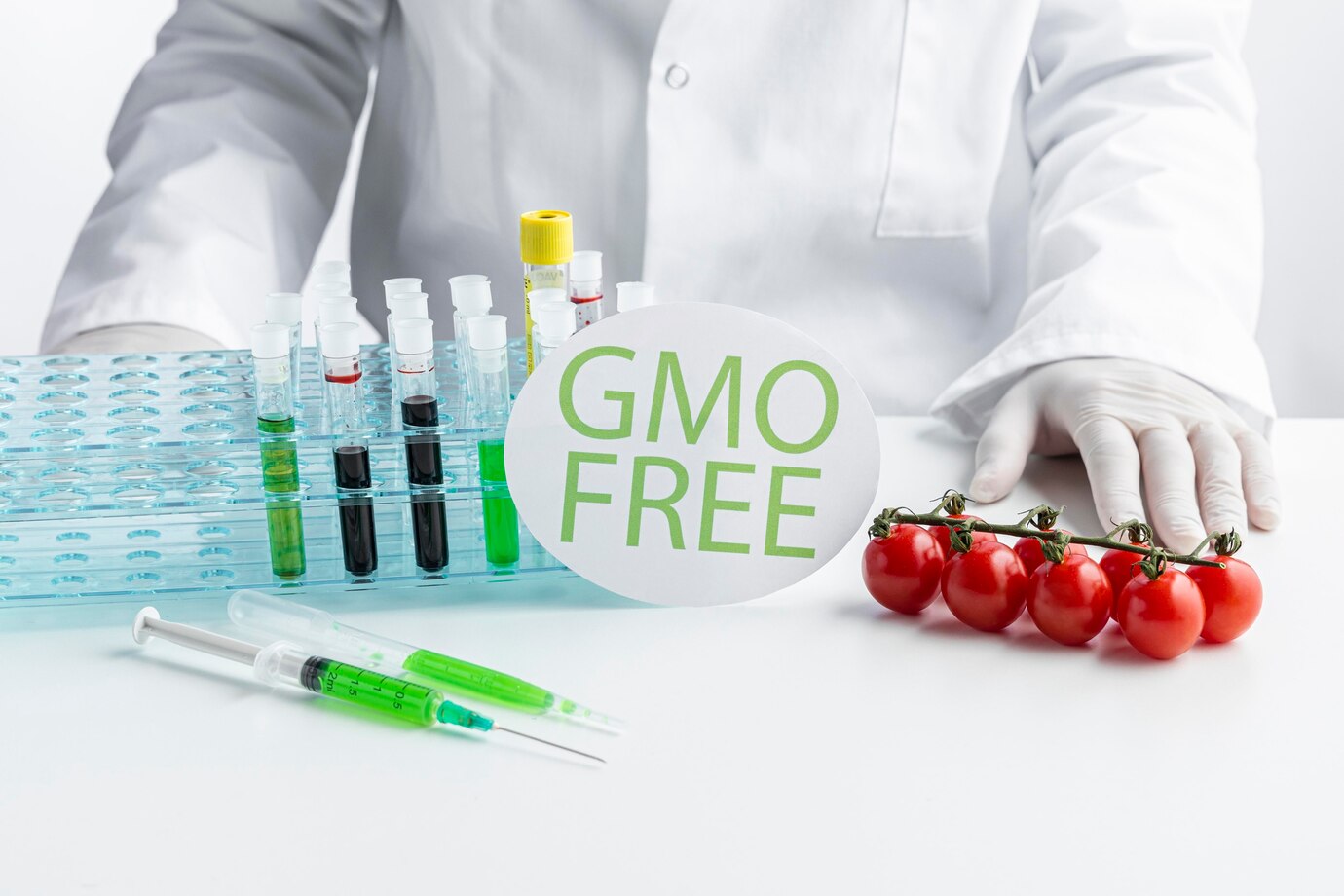GMO health effects refer to the study of how genetically modified organisms (GMO) impact human health, including their nutritional benefits, potential risks, and overall effects on dietary quality and safety.

In recent years, GMOs (genetically modified organisms) have sparked lively debates about their effects on health and the environment. As someone deeply immersed in the field of agriculture, I’ve seen firsthand how GMOs can be more than just a topic of controversy—they offer a range of benefits that can positively impact modern nutrition. Let’s delve into five compelling ways GMOs contribute to better health and nutrition and why these benefits are worth celebrating.
1. Enhanced Nutritional Profiles: A Boost for Your Health
One of the most exciting benefits of GMOs is their ability to enhance the nutritional profiles of our food. Imagine biting into a tomato that tastes delicious and is packed with extra vitamins and minerals. This isn’t just a dream—thanks to genetic modification, it’s a reality.
Take, for example, the development of golden rice. This genetically engineered rice has been modified to produce higher levels of vitamin A, a nutrient crucial for eye health and immune function. In regions where vitamin A deficiency is prevalent, golden rice can be a game-changer, helping to prevent blindness and boost overall health.
Or consider genetically modified soybeans enriched with omega-3 fatty acids. These healthy fats are essential for heart health and cognitive function. By incorporating GMOs with enhanced nutritional content into our diets, we can address nutrient deficiencies and improve public health.
2. Increased Crop Yields: Feeding a Growing Population
As the global population rises, ensuring a stable food supply is more critical than ever. GMOs significantly increase crop yields, which is essential for feeding the world’s growing population.
Imagine a farm where crops are more resilient to pests and diseases or where plants can thrive in less-than-ideal soil conditions. We can develop crops with built-in resistance to common pests and diseases through genetic modification, reducing the need for chemical pesticides and fertilizers. This boosts yield and makes farming more sustainable and less resource-intensive.
For instance, Bt corn, a genetically modified variety, contains a gene from the bacterium Bacillus thuringiensis, which makes the plant resistant to certain insects. This results in higher yields and less crop loss, contributing to food security and more efficient agricultural practices.
3. Reduced Need for Chemical Inputs: A Cleaner Environment
Another significant advantage of GMOs is their potential to reduce the need for chemical inputs like pesticides and herbicides. Traditional farming often relies heavily on these chemicals, which can have adverse environmental effects and contribute to health risks.
By developing genetically modified crops resistant to pests and diseases, we can minimize the use of harmful chemicals. For example, glyphosate-resistant crops allow farmers to use herbicides more selectively, targeting weeds without harming the crops. This reduces the chemical load on the environment and promotes healthier soils and cleaner water sources.
Consider the environmental impact: fewer chemical inputs mean less runoff into water bodies, which helps protect aquatic ecosystems. It’s a win-win situation—GMOs help preserve the environment while maintaining agricultural productivity.
4. Improved Crop Resilience: Adapting to Climate Change
Climate change threatens agriculture, with shifting weather patterns and extreme conditions affecting crop yields and food security. GMOs offer a solution by enhancing crop resilience to these changing conditions.
Picture crops that can withstand drought, floods, or extreme temperatures. Genetic modification allows us to develop plants with traits that help them survive and thrive under challenging conditions. For example, drought-resistant crops can maintain yield levels even during periods of water scarcity, helping to ensure a reliable food supply despite changing climate conditions.
This resilience is crucial for maintaining global food security. As weather patterns become increasingly unpredictable, the ability to grow crops that can adapt to these changes becomes more important. GMOs provide a valuable tool for farmers facing the challenges of a warming world.
5. Enhanced Food Quality and Safety: A Healthier Plate
Finally, GMOs contribute to improved food quality and safety. By modifying the genetic makeup of crops, we can enhance their quality, making them safer and more nutritious for consumption.
Take, for instance, genetically modified potatoes engineered to resist bruising and browning. These potatoes look better and have a longer shelf life, reducing food waste and improving the quality of the food that reaches consumers. Similarly, GMOs can be designed to produce foods with fewer allergens or toxins, making them safer for those with sensitivities or allergies.
GMOs improve food quality and safety, helping to ensure that what we eat is nutritious and free from harmful substances. This enhancement in food quality can lead to better health outcomes and reduced foodborne illnesses.

Conclusion: Embracing the Benefits of GMOs
As we’ve explored, GMOs offer a range of positive impacts on modern nutrition. The benefits of GMOs are both significant and far-reaching, from enhanced nutritional profiles and increased crop yields to reduced chemical inputs and improved crop resilience. By embracing these advancements, we can address some pressing challenges in agriculture and contribute to a healthier, more sustainable future.
So, remember these five positive impacts the next time you hear a debate about GMOs. GMOs are not just about altering crops; they’re about improving our health, protecting our environment, and securing our food supply for generations.
